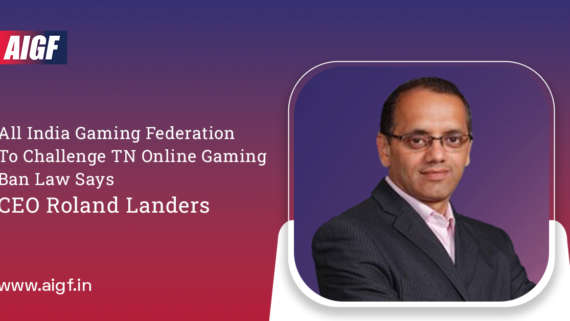The Supreme Court of India has developed a special mechanism: banning skills-based games, so-called games of chance, and calling games where skills are greater than chance as games of chance. In terms of skills, they are banned. However, due to the lack of a rigorous mechanism for determining skills and opportunity games, courts have applied this principle in different ways in different cases and create different use cases.
Is There A Need Of Regulatory Body In The Online Fantasy Gaming Industry?
The Indian online gaming industry has transformed into a whole new dynamic during the lockdown and is expected to grow exponentially in the next few years. Creating space and opportunities for the development of other auxiliary industries, and becoming a profitable space for the Indian economy: Gaming networks have made a huge breakthrough and have quickly become a booming industry.
These industries provide a lot of room for the development of the Indian economy, and the full use of their potential will prove to be very beneficial to the vitality of the economy. However, a key step in this process is the legal framework that will truly benefit the economy. With an eye on the upcoming season, let’s take a look at the current legal framework and look at the current loopholes in these industries.
In particular, given the volatility we are talking about, the Indian Constitution authorizes each state of the country to draft its own gambling law, which means that there are deviations in the laws of each state, ranging from flexible laws to completely banning the genre. For example, Telangana, Andhra Pradesh, and Tamil Nadu prohibit online gambling. In West Bengal, bridge, poker, and rummy are excluded from the definition of the game, so the terms vary from state to state. On the other hand, Sikkim and Nagaland require permission to play games online.
These laws are incompatible and in this sense are not suitable for today’s games. For example, the law assumes that games are played in a physical room, a “normal game room”, but with the development of the digital economy and virtual world, these laws are not only outdated but are not enough.
This is supported by the fact that even those states that recognize online games are taking a different approach: The Tamil Nadu system allows skill games even if online games have been banned. On the other hand, Telangana and Andhra Pradesh have completely banned online games that use additional bets or incentives (such as money or gambling). Due to the lack of consistency and clarity of industry laws.
The Supreme Court of India has developed a special mechanism: banning skills-based games, so-called games of chance, and calling games where skills are greater than chance as games of chance. In terms of skills, they are banned. However, due to the lack of a rigorous mechanism for determining skills and opportunity games, courts have applied this principle in different ways in different cases and create different use cases.
Therefore, this is not an accurate description of the usefulness of modern games, because the lines become a bit blurry. The result is a complex legal system that makes loopholes difficult to identify and easy to find. Whether to allow specific games. This confusion becomes problematic for a variety of reasons. First of all, the lack of industry rules has created more room for doubts and differences between consumers and companies.
When it comes to taxation, the skill vs. chance debate creates complications. Currently, under the Income Tax Act, 1961, as per sec 115BB, income from the game that does not involve any skills are charged at 30%, assuming the game includes the abilities of an individual to be applied, the equivalent will be charged at ordinary rates as are appropriate if there should arise an occurrence of the beneficiary of such pay.
As more and more players are entering the online gaming industry, some players with incomes between 500,000 and 700,000 are emerging. Additional tax laws are required to ensure this income. Generally speaking, the gaming industry has recently faced challenges related to national security. PUBG was recently fired because it was found to provide information about Chinese Communist Party (CCP) users. Research by IGN India shows that Indian user data is being exported to Chinese servers. Although Krafton Games (the company behind PUBG in India) has corrected this path and temporarily received a green signal, the question remains whether several other games may be involved.
The functions of the self-regulatory organization include but are not limited to
1) Skill vs. Chance: To reduce ambiguity and lack of uniformity, the regulatory body would form an evaluation committee that would assess each member of the OFS space. The existing members and future members would seek approval from this committee to continue their operations in India. The committee would form a test under guidance from legal and statistical experts to determine whether a game is predominantly skill-based. Only predominantly skill-based games will get approval and be allowed to operate. This will not only remove the grey area in the system but would also reduce the burden on the legal system between conflicts of skill and chance.
2) Inter-state complexities: Currently, members of the Online Fantasy Sports space face difficulty with compliance to separate demands of different states. The regulatory body would reduce inter-state complexities by appointing a representative to each state. The representative would advise states on adjusting their legislation concerning the principles and would also assist the members with their compliance issues in their respective states. This would boost industry growth, by reducing unnecessary costs incurred by these companies for compliance and also increase competition by improving ease of doing business in this industry.
3) Data Privacy: India has become a major market in the gaming industry and has attracted an array of foreign investors and companies to secure their position in the market. However, this also opens up a world of possibilities that may involve data privacy violations and data theft. Setting up a data privacy watchdog has now become essential to safeguard the national interest of the country as well as the consumers. The regulatory body would keep the data route of gaming companies in check while imposing a fine on any discrepancies or misdoings. Any foreign company venturing into the Indian gaming space would have to get its application checked for any data collection without the expressed consent of the consumer.
Credits: Inventiva











Comments
Comments are closed.